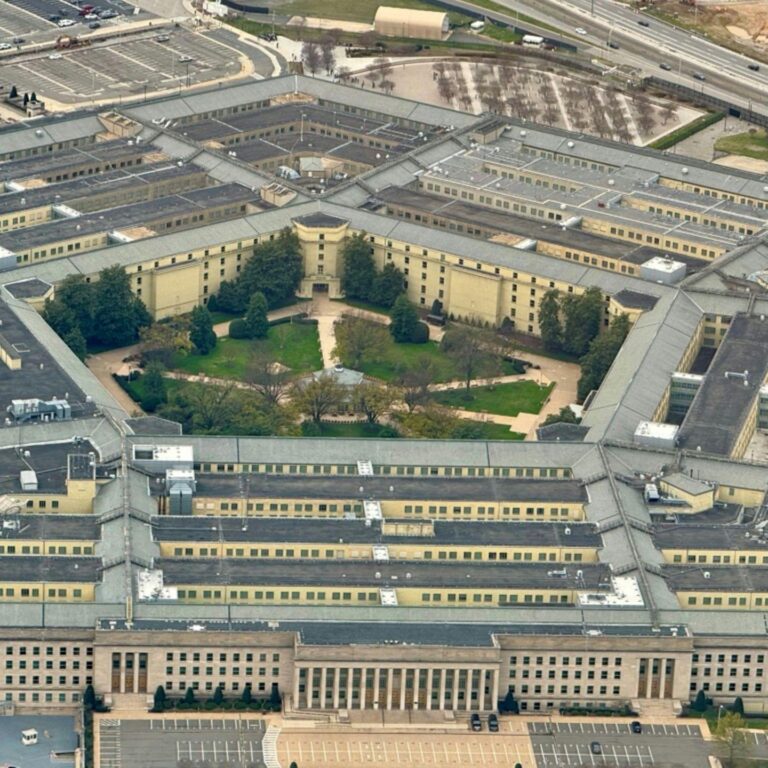The Pentagon is intensifying diplomatic efforts with Japan and Australia amid rising tensions in the Indo-Pacific region, urging both allies to clarify their roles in the event of a potential conflict over Taiwan. As Beijing continues to assert its claims over the self-governing island, U.S. defense officials are seeking closer coordination and contingency planning with key regional partners to bolster deterrence and ensure a unified response. This development highlights the mounting strategic challenges facing Washington as it navigates the complex security dynamics surrounding Taiwan.
Pentagon Urges Japan to Enhance Military Readiness Amid Rising Taiwan Tensions
Amid escalated military activities in the Taiwan Strait, U.S. defense officials have intensified calls for Japan to step up its military preparedness. Senior Pentagon representatives emphasized the strategic necessity for Tokyo to bolster its capabilities, enhance joint training exercises with American forces, and invest in advanced defense technologies. This push is part of a broader effort to ensure regional stability and deter any aggressive moves that could destabilize East Asia.
Key areas highlighted for Japan’s military enhancement include:
- Expanding air and naval patrol operations around contested zones
- Deepening intelligence-sharing frameworks with allies
- Upgrading missile defense systems
- Increasing readiness for rapid deployment in crisis scenarios
| Capability | Current Status | Projected Enhancement |
|---|---|---|
| Air Patrol Coverage | Moderate | Significant Expansion |
| Naval Exercises | Regular | Increased Frequency & Scope |
| Missile Defense | Selective Deployment | Nationwide Augmentation |
Australia Encouraged to Strengthen Regional Defense Partnerships and Intelligence Sharing
In light of rising strategic tensions in the Indo-Pacific, Australian defense officials are urged to deepen collaboration with regional partners to ensure a robust and unified response capability. The emphasis is on enhancing military interoperability alongside sharing timely intelligence data to address any escalation surrounding Taiwan. Analysts argue that stronger defense ties could serve as a crucial deterrent and a stabilization factor amid increasing pressure from rival powers seeking to alter the regional status quo.
Key areas identified for immediate action include:
- Expanding joint military exercises focused on maritime security and rapid response scenarios.
- Enhancing signals intelligence (SIGINT) cooperation to improve threat detection and situational awareness.
- Establishing secure communication channels to facilitate real-time intelligence exchange during crises.
| Priority Area | Current Status | Recommended Action |
|---|---|---|
| Joint Exercises | Quarterly | Increase to monthly drills |
| Intelligence Sharing | Ad-hoc | Formalize protocols |
| Communication Security | Limited | Invest in encrypted networks |
Strategic Recommendations for Tokyo and Canberra to Deter Potential Chinese Aggression
To effectively deter potential Chinese aggression, Tokyo and Canberra must prioritize enhancing their joint military capabilities with a specific focus on interoperability and rapid deployment forces. This involves expanding combined exercises emphasizing maritime domain awareness, anti-submarine warfare, and air defense integration. Equipping forces with advanced reconnaissance technology and secure communication systems will enable a unified response in crisis scenarios around Taiwan and the broader Indo-Pacific region. Additionally, both capitals should deepen intelligence-sharing frameworks to ensure timely strategic assessments, reducing reaction times to potential provocations.
Beyond military preparedness, strategic diplomacy must play a key role. Tokyo and Canberra should bolster alliances not only with the United States but also with regional partners, fostering a multinational front that balances China’s growing influence. Economic leverage via coordinated sanctions and trade policies can complement defense postures. The following table outlines critical areas for coordination and proposed actions to reinforce deterrence efficiently:
| Strategic Area | Proposed Action |
|---|---|
| Joint Military Exercises | Expand frequency & scope, focus on Taiwan Strait scenarios |
| Intelligence Sharing | Establish real-time data pipelines and early-warning systems |
| Diplomatic Coordination | Engage regional allies for unified messaging and response |
| Economic Measures | Coordinate targeted sanctions on key sectors linked to aggression |
Key Takeaways
As tensions continue to simmer across the Taiwan Strait, the Pentagon’s outreach to Japan and Australia underscores the evolving strategic calculations in the Indo-Pacific region. How these key U.S. allies respond to potential conflicts will significantly shape the balance of power and regional stability in the years ahead. Observers will be watching closely as diplomatic and military dialogues progress, highlighting the complex interplay between deterrence, alliance management, and geopolitical interests.




